|
The water damage response and repair industry has emerged into the consumer discourse. But how many property restoration contractors are aware of the rich history of innovation and collaboration that have laid the groundwork their livelihood? In this episode we take a field trip into the past with Ron "Alfie" Alford and complete our recap of RIA 2024 with Ed Cross. In Episode 118 of The DYOJO Podcast 0:00 The 5th Water Damage Air Mover Made 12:49 Robust Conversations with Xactimate 18:16 History and Headway with the AGA 28:00 Becoming a Class A Contractor with Ron Alford References and guest appearances for this episode include: Sgt Ed from Restoration Crosscheck, video from Ron Alford, Cliff Zlotnik, Jim Thompson, Mark Springer, Katie Smith, excerpts from Ron Alford's book How To Win The Insurance Claim Game (available on Amazon), prior episodes of The DYOJO Podcast. The DYOJO Podcast for Contractors
New episodes are released on Thursdays at 12:01am PST
0 Comments
Jon Isaacson had the honor of being selected to present The 3 P's of Project Management for multiple construction tradeshows this year. Friday, February 2, 2024 Pete Consigli's Winter Break 2024 (Naples, Florida) Jon Isaacson is Speaking on The 3 P's of Project Management for Construction Professionals Thursday, February 29, 2024 11:15 AM – 11:45 AM National Association of Home Builders (NAHB) International Builders Show (Vegas, Nevada) Jon Isaacson is Speaking on The 3 P's of Project Management for Construction Professionals Wednesday, April 10, 2024 10:45 AM to 11:30 AM CT Restoration Industry Association (RIA) Annual Conference and EXPO (Dallas, Texas) Jon Isaacson is Speaking on The 3 P's of Project Management for Restoration Professionals During these presentations, Jon shares from his over twenty years of experience in the skilled trades. He also shares principles from his third book, So, You Want to be a Project Manager? The 3 P's presentation reviews the traditional metrics of project management which require an organization to bring projects to completion ON scope, ON budget, and ON schedule. As the discussion progresses, Jon helps owners, managers, and construction professionals better prepare for consistent outcomes with the dynamics of project management. In addition to those core competencies, modern professionals have to always be learning to improve their skills with People, Process, and Projects (The 3 P's). The two resources that attendees most ask for after the attend the 3 P's of Project Management presentations are The DYOJO Production Sequencing and Project Tracking spreadsheets (see images above). If the reader is interested in these resources they should check out Jon's books, So, You Want to be a Project Manager (production sequencing) and How to Suck Less at Estimating (project tracking). How to Suck Less at Estimating is also a six module course available through Restoration Technical Institute. Contact The DYOJO today to discuss these resources.
Tradeshows are an excellent way to expand your knowledge and your network. Industry expos can also be socially awkward. To maximize professional value you must embrace social awkwardness by pushing through personal discomfort. Be intentional to move yourself from attendee to participant. One creative way I have found to force myself to meet new people is to try to meet a member from every state at larger industry events. This practice gives me a goal, forces me out of my shell, and has opened up some fun conversations. A few suggestions to help professionals embrace social awkwardness and harvest more value from industry events:
We know customer’s aren’t always right. Yet, how come in insurance claims, property restoration, and construction projects we perpetuate this mantra of, “Do right by the customer”? In Episode 116 of The DYOJO Podcast we will review whether this mindset leads to the positive project outcomes that all parties are looking for. In Episode 116 of The DYOJO Podcast 0:00 The customer isn't always right 1:32 Restoration contractor convention 2:45 Do right by the customer - construction scope of work 8:18 Making the impossible possible 13:40 Do right by the customer - insurance scope of work 16:51 Who knows the most 19:39 Thinking differently about the project management role 21:22 Construction cost disputes Clips were used in this Episode from * The RIA Martin L King Award introduction video * Scott Seiss Comedy * Due South Inspections / Due South Brad * 100 TDP Matching Materials for Insurance Claims * Let The Structure Speak by Jon Isaacson (C&R Magazine) LAST EPISODE TDP 115 Property Restoration and Insurance Claim Contractors Convention NEXT EPISODE Join us as we discuss hard construction lessons learned from a failed nuclear power plant in Elma, Washington. AND we will discuss some unique perspectives on recruiting, hiring, and developing professionals for the construction project management role. Thursdays are for The DYOJO Podcast - helping contractors shorten their DANG learning curve. Join host Jon Isaacson as we explore contractor stories, experiences, and best practices to help listeners thrive in the skilled trades.
MUSIC Theme - It's Only Worth It If You Work For It by NEFFEX Cool Revenge - Jeremy Blake In this episode of The DYOJO Podcast we share tips for making the most of the Restoration Industry Association (RIA) annual convention and expo. This year it will be in Dallas, Texas, April 8 - 10, 2024. Watch and listen for several Passport Stops that will help you elevate your mindsets and habits as a contractor specializing with insurance claims and disaster recovery In Episode 115 of The DYOJO Podcast 0:00 Industry Issues & Drama 4:48 Passport #1 9:57 Passport #3 14:07 The DYOJO Audiobooks 16:37 Passport #4 19:12 Passport #5 20:57 Passport #6 23:34 Passport #8 26:20 Property Restoration History 31:53 Passport #11 Clips were used in this Episode from * The RIA Martin L King Award introduction video * Several prior episodes of The DYOJO Podcast Articles Cited Include * A Brief Walk Through RIA History by Michelle Blevins (R&R Magazine) * Founding Fathers of Restoration by Pete Consigli (RIA Website, C&R Magazine) * Restoration’s History and the Modern Restorer by Jon Isaacson and Pete Consigli (Cleanfax Magazine) LAST EPISODE TDP 114 No One Wants to Work NEXT EPISODE Join us as we discuss hard construction lessons learned from a failed nuclear power plant in Elma, Washington Thursdays are for The DYOJO Podcast - helping contractors shorten their DANG learning curve. Join host Jon Isaacson as we explore contractor stories, experiences, and best practices to help listeners thrive in the skilled trades.
MUSIC Theme - It's Only Worth It If You Work For It by NEFFEX When was the last time you reviewed and updated your job descriptions?
In this short clip from Episode 112 of The DYOJO Podcast, we encourage business owners and managers to review and rethink the standard job description. Achieve better outcomes in recruitment, hiring, development, and employee retention by updating these processes to reflect your unique culture. NEW BOOK - Resources for Young Pros As a business owner or manager, are you stressed out, struggling to find ways to engage with young professionals in the workforce? P2T, the new book by Jon Isaacson will help businesses create a competitive advantage. My new book will help you better engage young professionals and articulate a pathway to success for new hires. P2T is a win-win for employers and employees. BUY NOW on Amazon Learn more - thedyojo.com/book5 Transcript Really rethinking the job description? I think that fork forces us to rethink what do we actually want from this position. And I don't really care. I don't care that company A calls this a project manager and this is what the script is. Or they call this an estimator. That's a lead tech, what matters in your company? For this need, this is what we have a need for. What does that look like in our company? Let's get that on paper, you've got to show them a path to success. Let's think through as we're bringing this person in these will be your pathways to success. This is what success will look like first 30 days, 60 days, 90 days, and then we'll review it after you know, the first year. Probably first 90 days, you may think you made a mistake. But just stick through it, you know, do the things we're asking you to do. I don't think we're setting you up for failure with what we're asking you to do, we have a pretty good idea of what we want that to look like, clear job description, a pretty clear plan, you've got to show them a path to success. The trick there being is there's only so much even the project manager that we just trained. There's only so much I can prepare you for. And then it's learn as you go, you know, there's only so much I can show you before it just kind of unless you're doing it, you're not going to make the mistakes that force you to learn. You've got to show them a path to success. On the flip side, have you ever worked with the lazy Boomer didn't want to pull their weight or felt like they'd put their time in? Recently we hired a project manager with no construction experience no prior project management, direct experience. I talked a lot about in the new book P2T as well as in the project management book about relevant experience, we have this tendency to think, man, if someone has construction experience, there'll be a great project manager. Well, the reality is the majority of project management in our industry and most construction industries is a lot of customer interaction and interacting with subcontractors and trades people and carpenters and employees by mindset change. And so the people management kind of gets overlooked. It is good to have in obviously, we can't be doing things the wrong way. But where someone maybe has spent their whole life developing their their technical skills, maybe they haven't quite developed their personal interpersonal skills. And so that needs to be accounted for when someone's being transitioned in that role. And then if someone can come in with a customer service role, they have to have the ability to not get taken advantage of or do things the wrong way or not be able to QC a project. So we hired somebody with no prior experience and they're doing really well actually got complimented by one of our tougher subs, you know, for being on top of their stuff. You know, having good scopes good communication, good communication with the customer. The DYOJO Podcast for Contractors:
New episodes are released on Thursdays at 12:01am PST |
Words
The DYOJO - helping contractors shorten Archives
June 2024
Categories
All
EstimatingMarketingInsurance ClaimsLeadership |
|
| |||||||


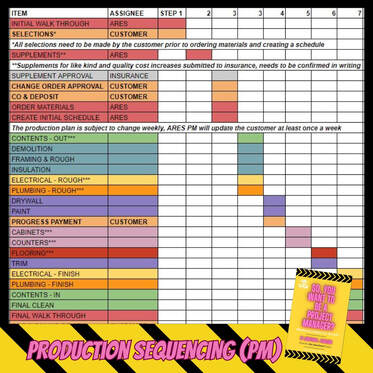
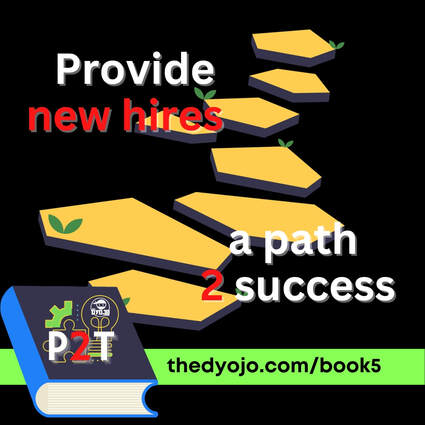
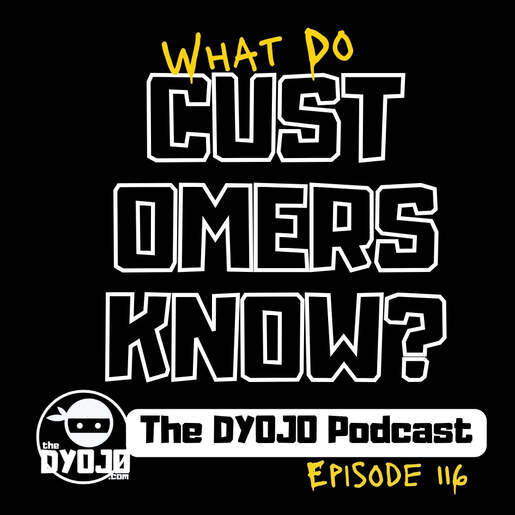
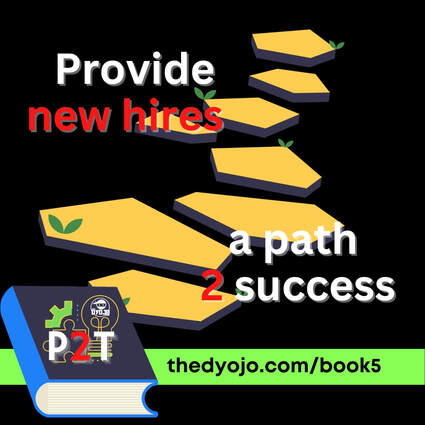
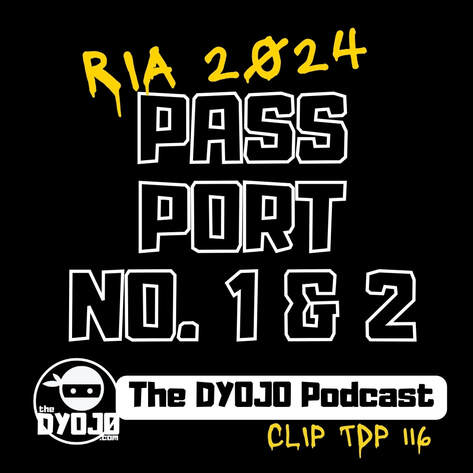

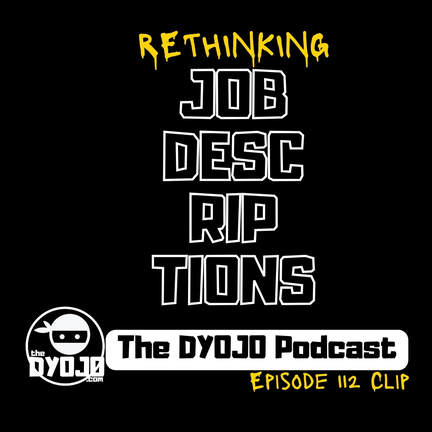

 RSS Feed
RSS Feed
